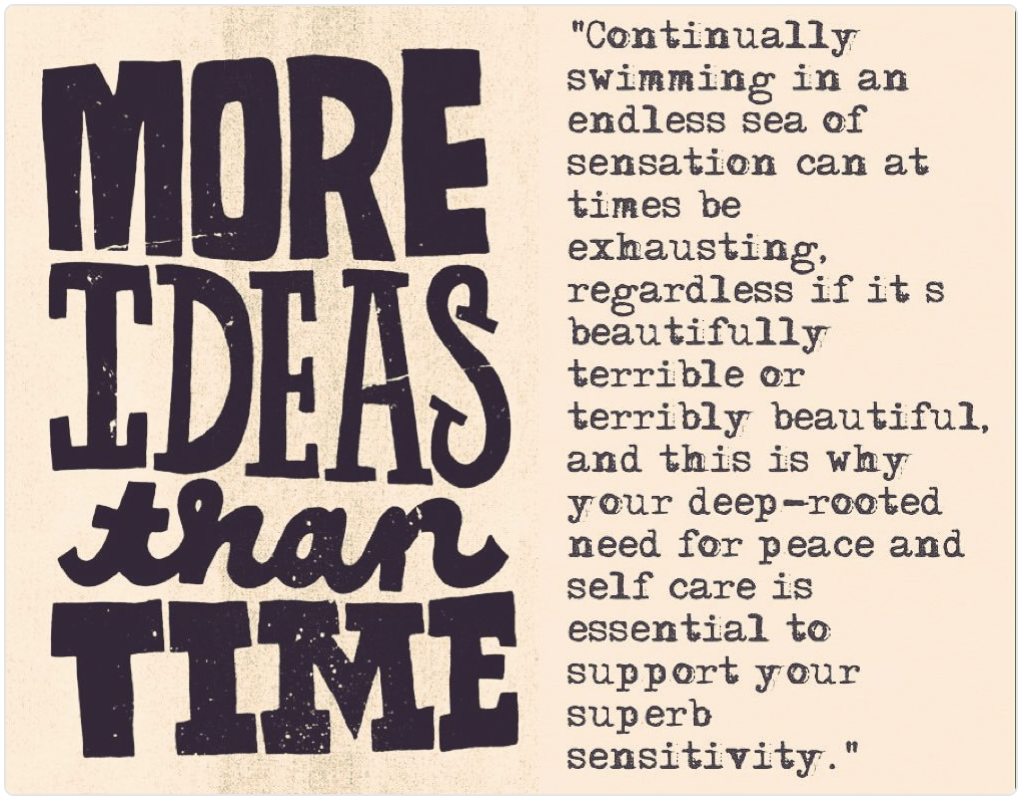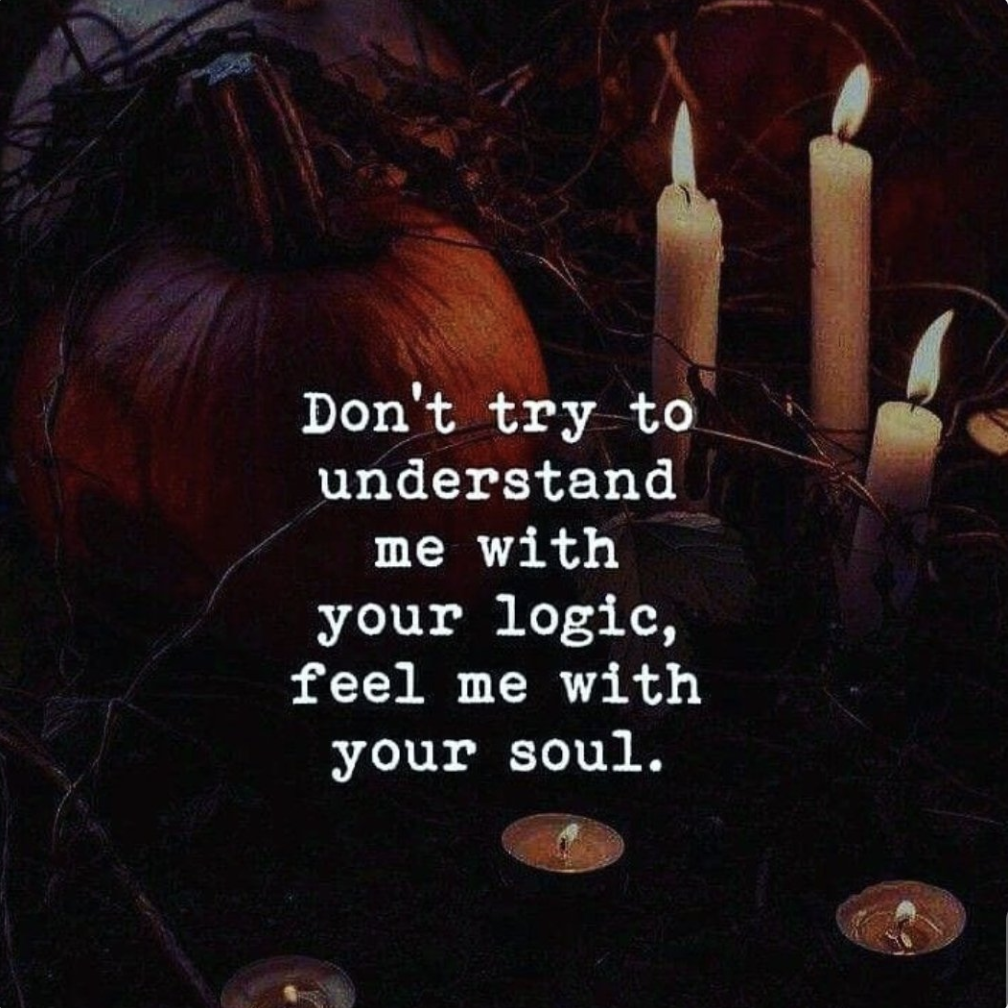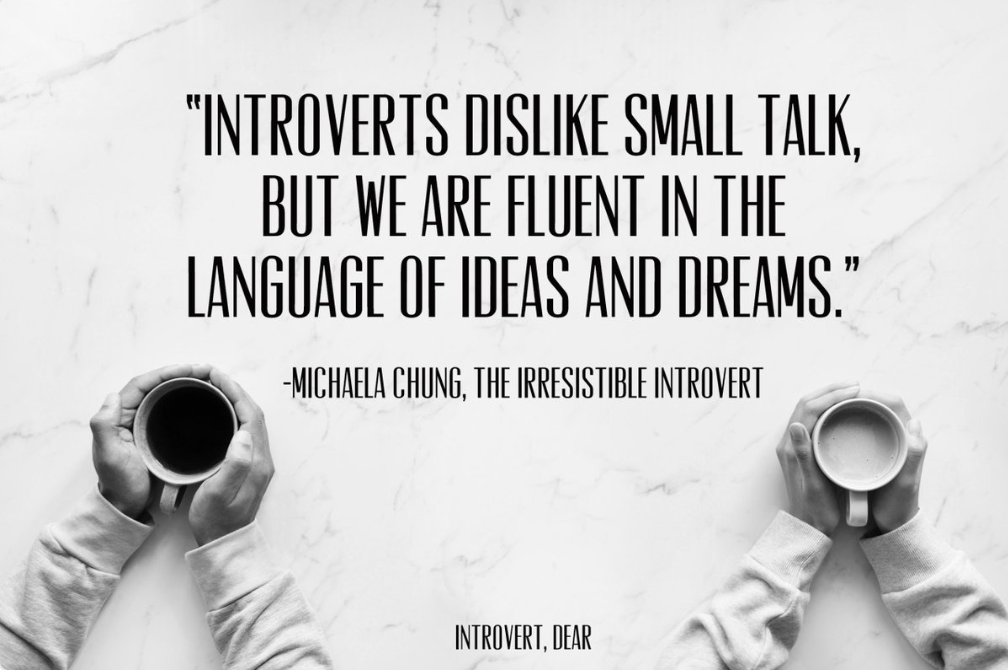The clear answers on what makes you different

INFJ is one of the most frequently-mistyped Myers Briggs (MBTI) types, making it highly misrepresented and warped in pretty much everything you read online.
But most ?INFJs? are actually ISFJ, ISFP or INFP.
Why does this matter?
1. Language integrity.
It matters for the same reason that we all have the same word for and understanding of ?dog,? for example.
If we don?t all agree on what a word means ? if people said ?dog? when they were really talking about a bird ? the conversation has no validity. This is even more critical if someone is Googling how to fix their ?dog? (which is actually a bird) and end up feeding it dog food, playing fetch, or giving it St. Bernard-level amounts of insulin (see 2: ?self-growth.?)
So many mistyped ?INFJs? produce posts, articles and memes that most of the information on ?INFJ? online is complete garbage that?s warped the description. So if you Google ?dog? (INFJ) now, all of the descriptions read something like ?has feathers, beak, wings? (i.e., describing other types), leaving no word for ?has fur, four legs, barks? (actual INFJs.)
2. Self-growth
If you?re truly using MBTI for growth, it?s even more important that you?re accurately typed, as different types have different red flags and growth paths, and one types growth path is another type?s unhealthy place
?I took a test and got INFJ?
1.) The tests are almost always wrong.
I?ve taken Buzzfeed tests that told me I am a horse, an essential oil, and the season summer. And I know that these are meant to be a joke, but the point is: don?t believe everything you read online ? even when it?s a quiz result.
2.) We are biased and poor at self-awareness. So we answer as our ?idealized? selves, or put what we think is ?right.? (Who isn?t going to answer ?yes? to ?logical? and ?able to think outside the box??)
Most ?INFJs? are actually ISFJ, ISFP or INFP
But they?re easily confused for each other? which makes sense ? because they?re all introverted, they?re all ?feelers,? they have similar concerns.
But these are very different types.
QUESTIONS
Here are some things to consider?
- How important is clarity, detail, and black & white information to you?
- How important is support, consistency, structure, and security?
- How important are your feelings, self-identity, self-expression?
- How important are new ideas, novelty, and experimentation to you?
- How do the happiest times of your life look?
- How do the lowest times of your life look? (Specifically: what do you do?)
- How do you ?lash out? when desperate? (And what feeling causes that?)
- What is your biggest concern or ?life struggle??
- What?s your greatest aspiration? And greatest anxiety?
- Why did you break up with your exes?
- How weird are you?
These types are not ?just one or two letters apart?
Most of us learn Myers Briggs as four sets of letters: extraverted vs introverted (E vs I), intuitive vs sensing (N vs S), thinking vs feeling (T vs F) and judging vs perceiving (J vs P.)
But in reality, the types are categorized by ?cognitive functions,? which orient Sensing, Intuition, Feeling, and Thinking as extroverted or introverted (E vs I.)
These are defined as:
Introverted sensing (Si)Extroverted sensing (Se)Extroverted intuition (Ne)Introverted intuition (Ni)Extroverted feeling (Fe)Introverted feeling (Fi)Extroverted thinking (Te)Introverted thinking (Ti)
And each type has a different ?stack? of these ?functions.?
INFP is? Fi ? Ne ? Si ? Te ISFP is? Fi ? Se ? Ni ? Te ISFJ is? Si ? Fe ? Ti ? NeINFJ is? Ni ? Fe ? Ti ? Se
Reasons for the confusion between them:
- We assume being ?analytical? makes us N or T (it doesn?t)
- We assume being ?intuitive? or having ?gut feelings? / ?a ha moments? makes us an N (it doesn?t. Everyone has these.)
- We assume being a perfectionist or detailed makes us J (it doesn?t)
- We assume being unique makes us the rarest type
- We aren?t familiar with cognitive functions (see above)
- We are often blind to our first (aka ?dominant?) function, and it?s so fundamental that we often underestimate how overpowering it is
- We are often blind to and don?t truly understand the cognitive functions that we don?t use a lot
- Introverted intuition (Ni), the dominant function of INFJ, is very difficult to define. (Which is totally meta, because Ni is the process of defining things that are difficult to define.) But because of this, it?s susceptible to others rushing in to claim it.
It?s almost easier to see Ni as what it isn?t.
Introverted intuition is not: our feelings, others? feelings, certainty, action, ideas, or goals. It?s not even ?logic? or ?planning for the future.?
It?s just? what?s ?left.? It?s white noise, white space, an ever-funneling toward ?the one, abstract thing? ? that can look and feel a lot like ?nothing.?
Let?s explore each pair in detail.
INFJ vs INFP
Similarities:
Both are private. Both are idealists. Both can be perfectionists. Both are insightful, analytical, logical, and meticulous. And both are intuitives, preferring the abstract over black and white.
The biggest difference?
INFP is highly in tune with their own feelings INFJ is usually oblivious to theirs
INFP?s dominant function is Fi (their own feelings), but INFJ doesn?t even have Fi in their stack. (Same for ISFJ.) Instead, their ?F? is extroverted (Fe) ? which is other people.
INFP has ever-expanding ideas ?inspired by feelings INFJ has ever-narrowing ?insights? ? about people
i.e., these are INFP not INFJ:


 note on third image: yeah both are introverts, but it?s the INFP who speaks fluent ?ideas and dreams?
note on third image: yeah both are introverts, but it?s the INFP who speaks fluent ?ideas and dreams?
INFP is inspiration, with insightINFJ is insight, with inspiration
At their worst:
INFP replays the past to relive emotions, and is sensitive (not critical)INFJ gets lost in ?white noise? / ?nothingness,? and is critical (not sensitive)
When desperate:
INFP obliterates their creativity with convention (ending up soul-crushed)INFJ obliterates their thinking with hedonistic indulgences (ending up ill)
Their insecurity / fear (or: the biggest insult):
INFP ? ?you?re not special,? ?you?re too sensitive/nave/spaced out?INFJ ? ?your insights aren?t meaningful,? or ?your life is meaningless?
INFP feels pride from being unique and being seen that wayINFJ feels pain from not being understood or connecting with others
INFJ biggest value isn?t ?authenticity? but rather ?universal meaning.? They are merely a vessel, and their F is focused on others, not self (their thoughts and insights ? not feelings ? are what?s focused internally, and sometimes INFJs are utterly blind to their own emotions.)
As Heidi Priebe wrote,
?Because INFPs tend to be highly creative and individualistic, most of them have never met another person quite like themselves (including other INFPs). For this reason, they find it fitting that their type is 1% of the population ? they think this explains their individuality, when in reality it is their introverted feeling that sets them apart.?
Deepest desire:
INFJs want universal insight on other people (INFP doesn?t really care)INFP wants unique expression of self (INFJ doesn?t really care)
INFJ vs ISFP
Similarities:
They?re both introverted. They?re both private. Both are insightful. And, unlike INFP and ISFJ, they both have Ni ? introverted intuition ? in their stack, which ISFP can access in combination with their dominant Fi.
The biggest difference:
Like INFP?
ISFP is highly in tune with their own feelings INFJ is usually oblivious to theirs
ISFP is inspiration, with insightINFJ is insight, with inspiration
At a low point, both can get lost in ?white noise,? but,
ISFP has insight tied to their feelings (Fi) and is more sensitive than criticalINFJ is more critical (Ti) than sensitive
When desperate:
ISFP obliterates their creativity with convention (ending up soul-crushed)INFJ obliterates their thinking with hedonistic indulgences (ending up ill)
Biggest insult / insecurity / fear:
ISFP ? ?you?re not special? (or: ?you?re too sensitive/nave/spaced out?)INFJ ? ?your insights aren?t meaningful? (or: ?your life is meaningless?)
ISFP feels pride from being unique and being seen that wayINFJ feels pain from not being understood or connecting with others
ISFP?s biggest value is compassion, self-expression, and authenticity
INFJ?s isn?t. Rather, theirs is ?universal meaning.? They are merely a vessel, and their F is focused on others, not self (their thoughts and insights ? not feelings ? are what?s focused internally, and sometimes INFJs are utterly blind to their own emotions.)
INFJ vs ISFJ
Similarities:
They are both analytical. Both seek logic and truth. Both can be perfectionists. They?re both compelled to get answers and can spend hours ?researching? or funneling down and organizing external input.
Both ISFJ and INFJ think about the future.
And both can be insightful and get ?gut feelings? and ?a ha? moments.
The biggest difference?
ISFJs want black & white ? and hate uncertaintiesINFJs want abstract ? and what?s ?clear? bores them
They are each other?s least favorite thing.
So the biggest ways to spot this mistype is:
a.) ISFJ embraces key values that INFJ?s neither want nor needb.) ISFJ embraces ?positive? INFJ values ? but rarely the ?negative? ones
In other words:An ISFJ mistyped as INFJ tries to have the best of both worlds. But INFJ isn?t ISFJ 2.0. They are dominated by very different things.
ISFJs like things (incl. the future) clearly definedINFJs? don?t care
Jung wrote that SJ, ?wants things to be pinned down and concluded.?
For example, SJs are the ones ?defining the relationship,? asking: ?what are we?? / ?where is this going?? Intuitives often don?t care.
Intuitives are ?excited by the unknown? and energized by the undefined. They don?t crave clarity.
ISFJ likes detail-orientedINFJ ? doesn?t
?Intuitive perception ignores the details.?
INxJs frustrate SJs, who often write off Ni-doms as: absent-minded, scattered, inattentive, inexact, careless, irresponsible, incompetent, unprepared, etc.
As expert Susan Storm wrote, ?we need sensors? to help us keep track of details that intuitives are more likely to miss.?
ISFJs value having a good memory (whether they feel they do or not)INFJs? don?t
As expert Susan Storm wrote, SJs: ?absorb and place importance on proven facts, which they can recall swiftly.?
In Neuroscience of Personality, Dario Nardi, PhD wrote: ?when reviewing past events?ISTJ and ISFJ easily enter an expert flow state? reliving it in rich detail?
They, ?Have a vast memory bank of stored impressions, facts, and details that give them unshakeable ideas and viewpoints? [they] can easily recall details and experiences from the past? [and] pull from their memories to give you all the details that are so necessary to know before deciding what step to take next. They aren?t the types to make forgetful blunders because they are very careful, responsible, and attentive to all the practical facts.?
But intuitives, as Storm wrote, ?have a harder time remembering.? And Jenn Granneman agrees: they aren?t good at ?the actual details of what happened.?
ISFJ often feel they need to get ?better routines? / ?more organized? INFJ? does not care
As MBTI nerd DaveSuperPowers shared,
?People with Si? think they don?t have it because they think that they suck at it.?
In other words: many xSxJs feel they?re not ?good enough? at being SJ, and when you ask about SJ things, they score themselves ?low? ? ?I?m not good at that.?
But the question isn?t whether you?re good ? the question is whether you care.
Non-Si users do not even value Si enough to care about being good at it, let alone worry about whether or not they are? they either do it or they don?t, but they don?t agonize over not being great at it. This is only high-Si users.
ISFJ is practical, pragmatic, and seeks stabilityINFJ ?isn?t, and doesn?t
As Storm wrote, SJs are ?careful in all their decisions. They consider what they?ve learned, from mistakes, from memory, from their education, and they take all that accumulated knowledge and apply it to their decisions. They create stability for the people in their lives, and crave stability in their own lives.?
Jung wrote that an intuitive ?can never exist in stable, long-established conditions? [which] have an air of impending suffocation.?
ISFJ is dutiful INFJ ?isn?t
ISFJs ?place great importance on keeping their word? and are consistent and dependable?. [they] believe in being responsible, in following through and completing projects, and they tend to be rattled by change and unpredictable or unfamiliar situations.?
Conversely, Jung wrote that intuitives ?abandon? cold-bloodedly, without regard and apparently without remembrance, as soon as their range becomes clearly defined and a promise of any considerable future development no longer clings to them.?
ISFJ lives in the real worldINFJ lives at odds with reality
Sensing: ?perceives objects as they are ? realistically and concretely. It? attempts to represent, factually and in detail, the information that is available.?
Intuition ?perceives (without clear evidence or proof)? by reading things into the situation.?
Carl Jung wrote that an intuitive:
- Lives as though ?reality has no existence?
- Has a ?remarkable indifference? to ?anything outside their unconscious pursuit?
- Doesn?t establish connection ?between the phenomenon and himself?
- Shows ?an extraordinary aloofness of the individual from tangible reality?
- ?Is never to be found among the generally recognized reality?
- ?Gives himself up to fruitless phantasies?
- Which ?is of course fruitless from the standpoint of immediate utility?
An ISFJ would never live like this.
As expert Susan Storm wrote: ?we need sensors to remind us of what is real.?
They focus on similar things, but
ISFJ seeks clear answers to clear questionsINFJ seeks abstract answers to abstract questions
ISFJ serves others using clear expectations and seeking structureINFJ serves others without regard for expectations or structure
They have different levels/types of weirdness:
ISFJ is weird in relatable ways ? social media stalking, bailing on social events, Netflix binging ? but dislike when others are too unrelatably weirdINFJ is weird in less relatable ways. Not even creatively like INFP, just often outside or at the edges of normal society
At a low?
Both withdraw from others, analyze, seek logical explanations, and can get critical, but:
ISFJ repeatedly replays what happened INFJ rarely does
When desperate:
Both have sudden urges to ?get out of their head,? but:
ISFJ combats their usual desire for certainty / stability by ?brainstorming,? ?trying something new? (i.e., travel), ?shaking it up,? etc. (ending up anxious)INFJ doesn?t care about doing ?something new;? they just pursue hedonistic indulgences (ending up ill)
Biggest insult / insecurity / fear:
ISFJ ? ?you?re unreliable?INFJ ? ?your insights aren?t meaningful?
ISFJs lives and breathes clarity ? and loathes ambiguityINFJs lives and breathes ambiguity ? and loathes ?black and white.?
Clarity and concrete understanding are ISFJ?s guiding light. These bore the INFJ.
Is one type better than the other?
Absolutely not.
(What does ?better? even mean here? How is it measured? Each type measures themselves and others differently.)
Look around most any work environment and you?ll notice that it?s the SJ?s more than any other type that keep the thing well-oiled and afloat. It is no small stretch of the imagination to suggest that civilization as we know it would crumble apart were it not for SJ efforts, and the ISFJ is far more the backbone to society than the other two.
And without a doubt, much of history?s greatest artwork, poetry, and expressions of the human spirit and experience are at the hand of INFPs. Few types can even come close to them in terms of creativity.
Why does it matter?
It doesn?t.
?If you?re happy and getting what you want in life.
But if you?re not, then knowing your real type can help immensely ? because the ?red flags? and ?growth avenues? for INFJ are entirely different than those for INFP and ISFJ and ISFP. ?Healthy? and ?happy? don?t look the same.
Knowing this helps us thrive and live our best lives.


